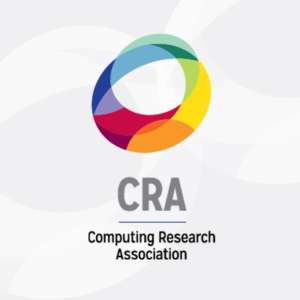
Workshop Report by CRA (Computing Research Association)
Accessibility needs evolve alongside the development of new technologies. New technologies, or even updates to existing technologies, often create new accessibility problems or reintroduce problems that had been previously solved. At the same time, advances in technology often have the potential to change the relationship between people and technology, which can be leveraged to create new accessibility solutions.
The past decade has shown tremendous advancement in technologies such as automatic speech recognition, machine learning, and wearable computing, while accessibility features have become mainstream1, available by default in most major operating systems.
To identify the accessibility challenges and opportunities of the present moment, in February 2023, the Computing Research Association (CRA) held a workshop on Accessible Technology for All2. This workshop brought together over 40 participants, 20 being remote, from academia, industry, government, and disability advocacy groups. The purpose was to frame the state of the art of accessible technology, identify forces shaping the evolution of accessible technology, and develop an understanding of implications for the next wave of computer science research in accessibility.
This workshop built upon the 2015 CRA Workshop Promoting Strategic Access to Rich Online Content and Services3, summarized in its accompanying report4. The workshop began with a keynote address from Richard Ladner (University of Washington and Access Computing). Ladner emphasized the importance of designing technology with accessibility in mind from the beginning, rather than trying to retrofit it later. Other speakers at the workshop included representatives from major tech companies, researchers from universities, and advocates from American Association of People with Disabilities, American Foundation for the Blind, and Autistic Self Advocacy Network. They presented on a range of topics, including regulation, design processes, accessible educational technology, inclusive design, and emerging technologies like virtual and augmented reality.
The event concluded with a group discussion on the future of accessible technology research and innovation and big takeaways from the workshop. Participants identified several areas for future exploration, including the use of Artificial Intelligence (AI) and machine learning to enhance accessibility, the development of new tools and platforms to support accessibility, and the importance of inclusive design practices. The following report will go into these areas in more detail.


